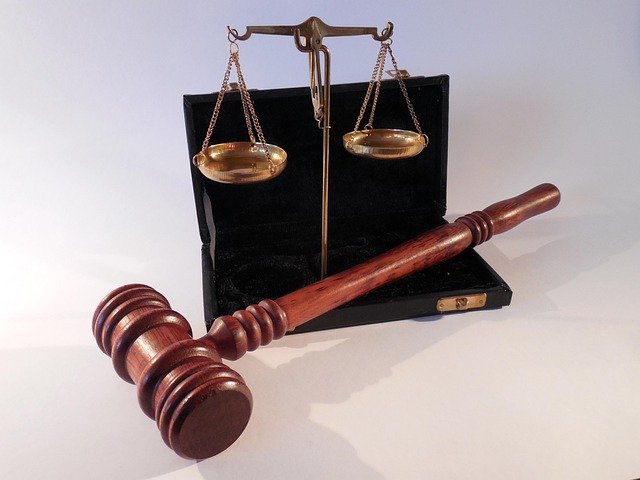Antitrust violation cases use class action lawsuits to combat restrictive business practices and protect consumers. Individuals with shared experiences and losses join these suits, amplifying their impact through collective action. Legal experts guide the process, from identifying violations to settlement or trial, ensuring affected parties' rights are protected and significant results are achieved. Understanding eligibility and following steps to join a class action lawsuit is crucial for holding corporations accountable and achieving justice.
In today’s competitive markets, understanding antitrust violation cases is paramount for consumers and businesses alike. This article guides you through the intricacies of class action lawsuits, focusing on key aspects such as eligibility criteria, the role of legal experts, navigating the lawsuit process, and protecting your rights. Learn practical steps to join a class action, ensuring your voice is heard and your rights are upheld in these complex legal matters.
- Understanding Antitrust Violation Cases
- Eligibility Criteria for Class Action
- The Role of Legal Experts in Filing
- Navigating the Lawsuit Process Step-by-Step
- Protecting Your Rights: A Guide to Participation
Understanding Antitrust Violation Cases

Antitrust violation cases are legal battles aimed at preventing and penalizing businesses that restrict trade or engage in unfair competitive practices. These cases, often involving complex economic theories and intricate market analyses, are designed to uphold fair competition and protect consumers from monopolistic behavior. Understanding these legal proceedings is crucial, especially for individuals who believe they’ve been affected by such violations. One way to get involved and potentially seek justice is through class action lawsuits—a powerful tool in the fight against corporate misconduct.
If you suspect a company’s actions have breached antitrust laws, joining a class action lawsuit could be a significant step. These legal actions aggregate numerous affected individuals under one case, amplifying their collective impact. By banding together, plaintiffs can pool resources, share expertise, and present a stronger argument in court. Moreover, successful class action lawsuits have led to substantial winnings for consumers, challenging powerful white-collar defenses and securing satisfying verdicts through jury trials.
Eligibility Criteria for Class Action

In the context of antitrust violation cases, class action lawsuits play a pivotal role in holding powerful businesses accountable for anti-competitive practices. To be eligible for a class action, individuals or entities must share common interests and experiences related to the alleged antitrust breach. This typically includes meeting criteria such as being customers or users of the respective business during the specified period, sustaining financial losses due to the alleged violations, and experiencing similar injuries as other class members. Understanding these eligibility steps is crucial for those considering joining a class action lawsuit.
The process involves several key steps to ensure a strong and successful claim. Individuals who believe they have been affected by an antitrust violation can start by conducting thorough research on the case, gathering relevant documents, and identifying their potential legal rights. Next, they should locate and review the official complaint filed against the business, which outlines the allegations and proposed class definition. Those who fit within this definition can then choose to opt-in or join the lawsuit, officially becoming part of the class. Achieving extraordinary results in these cases often hinges on the collective impact of numerous individuals joining forces to present a compelling argument for relief. Moreover, successful class action lawsuits have resulted in winning challenging defense verdicts, ultimately leading to significant changes in industry practices and better outcomes for consumers.
The Role of Legal Experts in Filing

In antitrust violation cases, legal experts play a pivotal role in guiding individuals and businesses who have been harmed by anti-competitive practices. These experts possess the necessary knowledge and experience to navigate complex legal landscapes, ensuring that victims’ rights are protected. They orchestrate the steps to join a class action lawsuit, which is a powerful mechanism to hold monopolistic companies accountable. By aggregating claims from numerous affected parties, legal experts amplify individual voices, enabling them to achieve extraordinary results in challenging corporate misconduct.
The process involves meticulous investigation, gathering of evidence, and crafting compelling legal arguments. Legal professionals also facilitate communication between plaintiffs, providing clarity on the potential outcomes and the benefits of collective action. Their strategic approach can lead to substantial settlements or, if warranted, jury trials, thereby avoiding indictment for businesses facing antitrust charges.
Navigating the Lawsuit Process Step-by-Step

Navigating an antitrust violation case involves a structured process that can be broken down into manageable steps. The journey begins with identifying potential violations and gathering evidence to support claims. This often requires in-depth research, expert analysis, and consultation with legal professionals who specialize in antitrust law. Once prepared, individuals or groups affected by these practices can join a class action lawsuit, which consolidates similar cases under one umbrella, amplifying the collective impact.
Joining a class action is a significant step towards achieving justice and potential monetary compensation. It involves submitting an application to become part of the legal proceedings, providing details on individual experiences and losses incurred due to alleged antitrust violations. Throughout this process, plaintiffs’ attorneys advocate for their rights, guiding them through pretrial activities, court hearings, and, in some cases, successful jury trials where winning challenging defense verdicts can be achieved. This collective action not only seeks financial redress but also highlights the impact of such practices on philanthropic and political communities, fostering awareness and potential regulatory changes.
Protecting Your Rights: A Guide to Participation

If you believe your rights have been violated due to an antitrust breach, understanding how to participate in a class-action lawsuit is crucial. The first steps involve gathering evidence and identifying potential legal grounds for a claim. This may include documents, communications, or records that demonstrate the anti-competitive behavior. Once ready, you can take action by filing a complaint with relevant authorities or joining an existing class-action suit.
Participating in these legal processes is significant as it allows affected individuals to collectively assert their rights against companies engaging in white-collar and economic crimes. Through this collective action, there’s a chance for substantial financial compensation or the complete dismissal of all charges, depending on the outcome of the case, which navigates all stages of the investigative and enforcement process.
Antitrust violation cases play a crucial role in protecting consumers and fostering fair market competition. By understanding the eligibility criteria for class action lawsuits, engaging legal experts, and navigating the lawsuit process, individuals can actively protect their rights. Following the outlined steps to join a class action lawsuit, as detailed in this guide, empowers folks to stand together against corporate misconduct. Remember that each case is unique, so seeking guidance from experienced professionals is essential for achieving justice and ensuring your voice is heard.






